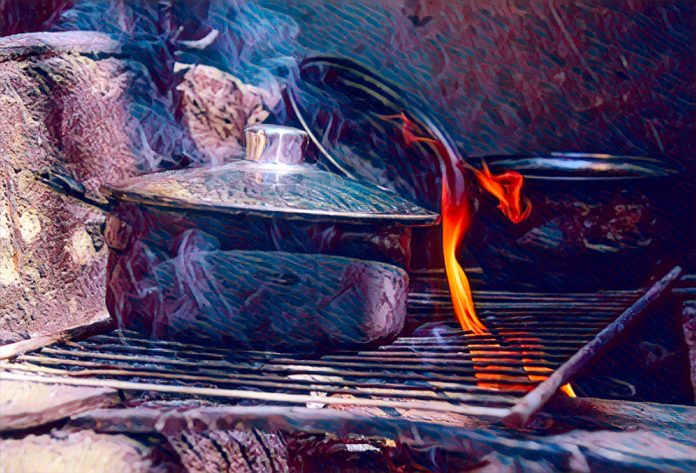Key Points
-
Nigerians switch to saw dust as cooking gas prices rise.
-
Charcoal, kerosene, and firewood costs continue to surge.
-
Households create makeshift stoves to cope with fuel scarcity.
The sharp rise in the price of cooking gas is forcing many Nigerian families to return to older, cheaper methods of cooking.
Charcoal, firewood, and saw dust are now making a strong comeback in kitchens across the country.
Across several states, families say the cost of gas has become unbearable. At most filling stations, a kilogram now sells for between N1,600 and N2,000. Even at that, supply is scarce.
Families Return to Traditional Cooking Methods
For many households, saw dust has become the only affordable option. Some have even started designing makeshift stoves to adapt.
In Lagos, Mrs. Racheal Durotimi, who sells herbs, said she turned to saw dust after weeks of struggling to refill her gas cylinder.
“I went to several stations and couldn’t find gas. The queues were terrible,” she said. “Charcoal is now too expensive, and kerosene is worse.
So, I bought two large bags of saw dust for N500 at the sawmill. That’s what I use now.”
She said a bag of charcoal that cost N2,000 finished in a single cooking session. “The type that lasts longer is far more expensive,” she added.
A 50-kilogram bag of charcoal now costs between N13,000 and N20,000, while briquette charcoal sells for as much as N50,000. Even firewood has risen to N800 or N1,000 per bundle.
Kerosene Prices Add to the Burden
For bricklayer Innocent Ogbei, the hike in gas prices led him to search for kerosene, but what he found shocked him. “All the filling stations near me were out of stock,” he said.
“Those that had it were selling for N2,000 to N2,500 per litre. I gave up. My friend at the sawmill sent me a bag of saw dust, and that’s what I’m using now.”
He recalled that kerosene became unaffordable after the subsidy removal years ago.
“People switched to gas, and now even that is out of reach. It’s like we keep going backward,” he said. “I pity restaurant owners. I don’t know how they’re surviving.”
Traders and Small Businesses Struggle
Small business owners who rely on cooking fuel are also feeling the pressure. Mrs. Hawa Monday, who fries snacks for a living, said she now depends on saw dust to stay in business.
“To get cooking gas now, you need connections,” she said. “At the filling stations, it’s N1,800 per kilogram, and from roadside sellers, it’s up to N2,500.
So, I bought a bag of saw dust for N2,000. It’s better than charcoal, which doesn’t last.”
According to her, saw dust was once free, but demand has now driven up the price. “Farmers are also using it, so it’s no longer easy to find,” she said.
The National President of the Nigerian Association of Liquefied Petroleum Gas Marketers, Oladapo Olatunbosun, blamed the price surge on temporary supply disruptions and market manipulation by some operators.
As families search for cheaper ways to cook, many say they feel trapped between poverty and survival.
For now, saw dust has become the unlikely lifeline for households trying to keep their pots boiling.



